Thinner thermal insulation with newly developed VIPs
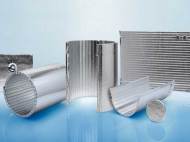 At present, insulation panels that are both thin and effective are expensive high-end products that are built into energy-saving refrigerators. In order to enable better and cost-effective insulation used in building construction, Fraunhofer researchers are developing vacuum isolation panels (VIPs) – short films for a material that will insulate homes without the need for significant structural changes.
At present, insulation panels that are both thin and effective are expensive high-end products that are built into energy-saving refrigerators. In order to enable better and cost-effective insulation used in building construction, Fraunhofer researchers are developing vacuum isolation panels (VIPs) – short films for a material that will insulate homes without the need for significant structural changes.
Unlike other currently used insulation panels with thick outer skin which requires changes in the building’s visual appearance and can lead to need for deeper window sills or even roof extensions, the VIPs are two centimeters (4/5 of an inch) thick and capable to perform as a 7 times thicker classic insulation layer made from polyurethane foam.
“The key elements are the films: they dictate the quality, life span and price”, said Dr. Klaus Noller from the Fraunhofer Institute for Process Engineering and Packaging IVV in Freising. “The current production method is time-consuming and expensive: three of the five layers of plastic have to be coated with aluminum and stuck together. This requires seven production steps, which drives the price up.”
Contrary to VIPs currently used in high-end refrigerators and freezers, the new film is easier to produce. It has only two plastic films with three barrier layers – one aluminum-coated plastic film coated with a micrometer-thin layer of ORMOCER and then coated again with aluminum. ORMOCER was developed at the Fraunhofer Institute for Silicate Research ISC.
ORMOCER contains an organic-inorganic hybrid silicon-oxygen polymer matrix, which makes the material stable and impenetrable by gases and liquids. Researchers at the Fraunhofer Application Center for Processing Machines and Packaging Technology AVV in Dresden have developed an automated process for gently sealing the pyrogenic silica cores with the high-barrier film.
Fraunhofer researchers are trying to simplify the production process even further and carry out longevity tests. SIPs had to last for an average lifespan of a refrigerator, which is around 12 years, but the building sector has higher demands where a facade should last 50 years. Stability tests of films and insulation elements are performed in climate chambers which simulate the seasonal changes, and the results should be available in a few months when we’ll hopefully update this article.



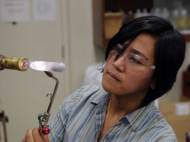
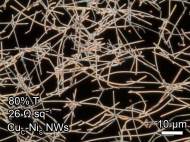
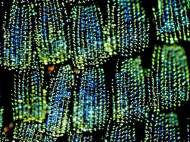


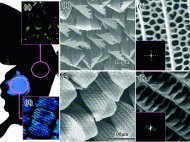
Leave your response!